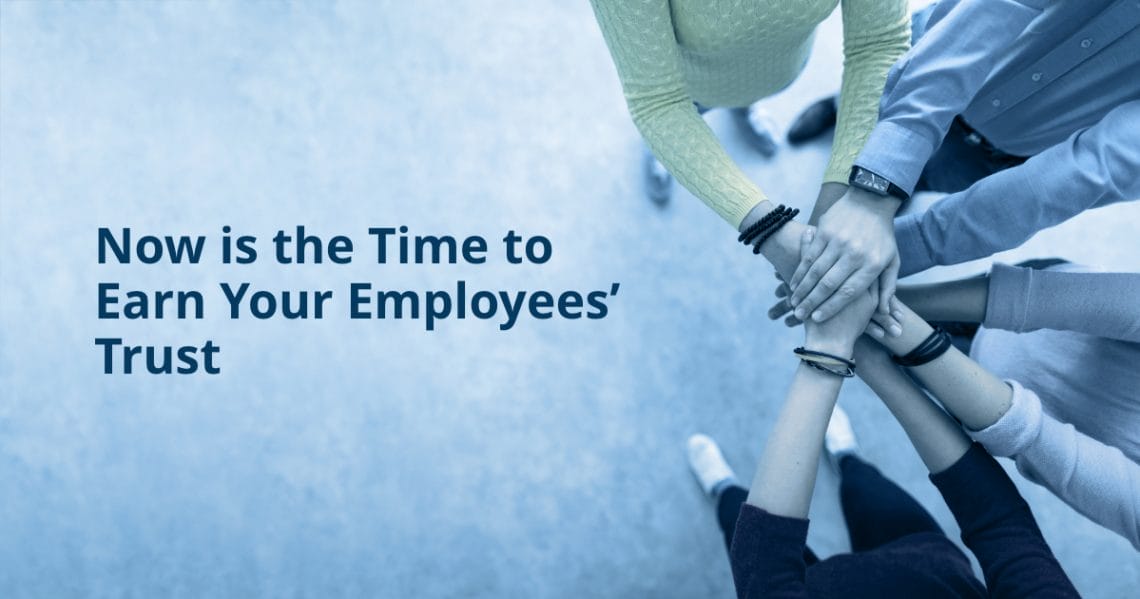 “The more things change, the more they stay the same.” This old saying aptly applies to the COVID-19 crisis.
“The more things change, the more they stay the same.” This old saying aptly applies to the COVID-19 crisis.
Everything in the workplace has changed, but what keeps employees motivated and what employers and leaders can do remains the same.
As employees adjust to how, when and where they work, it’s a great opportunity for employers to do a better job at what they already know is important.
In Brandon Hall Group’s 2020 Employee Engagement Study, organizations told us these were the most important steps to improve engagement and keep employees motivated:
- Create a sense of belonging
- Enable teamwork and collaboration
- Recognize and reward good work
- Show employees that their work is meaningful
- Give employees the freedom and authority to make decisions
All these actions help create better everyday employee experiences: the key to engagement.
Our research shows that organizations define engagement in many different ways, but the one that’s most actionable is, “Employee engagement is an outcome driven by the quality of employee experiences.”
Therefore, as your employees adjust to their new reality, it’s important to create the best learning experiences possible under the circumstances. How you help them adjust and cope can earn their trust and loyalty, now and after the crisis, or not.
Our 2020 research shows that highly engaged organizations are at least twice more likely than other organizations to clearly communicate, listen to employees, give frequent feedback to employees and have leaders and managers who have a strong affinity with their teams.
Whether your employees are working remotely for the first time, working different shifts, taking on new responsibilities, working fewer hours or furloughed, they must understand their roles, what they can expect, how they can help, and how you can help.
Here are some suggestions, based on our employee engagement research, on how you can create the best employee experiences possible in this difficult situation.
Create a sense of belonging
- Communicate, communicate, communicate. Leading organizations we interviewed have COVID-19 task forces, including a group focusing on employee messaging. The more information you share, the easier employees can cope. You also confirm their value and show your empathy.
- Solicit ideas. Don’t pretend to know all the answers. Ask your employees for suggestions. That reinforces your commitment to them – plus you are likely to get brilliant ideas you hadn’t considered.
- Provide guidance. We talked to several companies that are putting their employees in new situations, such as working from home. They have quickly created online guides or short tutorials on topics such as how to use online conferencing tools, how to manage your time while juggling responsibilities at home, coping with isolation, etc. This provides leadership and again demonstrates empathy.
Enable teamwork and collaboration
- Connect through collaboration. Use whatever tools you have to get people working together to solve problems. For example, social collaboration tools might be second-nature to some and completely foreign to others. Let the natives help the novices get on board (teamwork). Then use the tools to spread collaboration to mitigate the isolation of expanded work-at-home and other unfamiliar situations.
- Welcome feedback. Not everything will go perfectly. Some people will be critical. Solicit and welcome feedback. A critical component to engagement is employees feeling that they are heard. Soliciting feedback demonstrates your willingness to listen. Also, let employees know how you acted on their suggestions.
Recognize and reward good work
- Recognize good work and good deeds. People do extraordinary work and demonstrate astonishing kindness in crises. Make sure to encourage people to recognize each other in whatever ways are available. Management should take extra steps to recognize and, if practical, reward employees for going the extra mile to help colleagues and customers.
Show employees that their work is meaningful
- Share success stories. Companies are working through a slew of challenges. Show employees their work is meaningful by sharing great outcomes.
- Help employees cope. Everyone is stressed as the impact of COVID-19 continues to be felt globally. If possible, dedicate a team of people to help employees. For example, one company repurposed a “life events services team” that prepares employees for retirement, maternity leave, medical leave and other circumstances. Those people – plus reallocated staff from HR – now handle virus questions and track people at risk of exposure, helping as needed.
Give employees the freedom and authority to make decisions
- Trust employees to make decisions. Our world is in flux. It will be impossible to control everything employees do. Give them as much direction as time and circumstance allow, welcome questions, then allow them to do their jobs. Let employees know you trust them. It will help you get through this and will carry over when the crisis subsides.
Seize the moment
Collectively, these actions can go a long way to reinforce your employees’ trust for the organization and improve their impressions based on how you react in the face of crisis and uncertainty.
The context of engagement, keeping employees motivated, and the overall employee experience has changed dramatically over the last couple of weeks, but the opportunity and importance remain. Seize the moment.
– Claude Werder, Senior Vice President and Principal HCM Analyst, Brandon Hall Group
